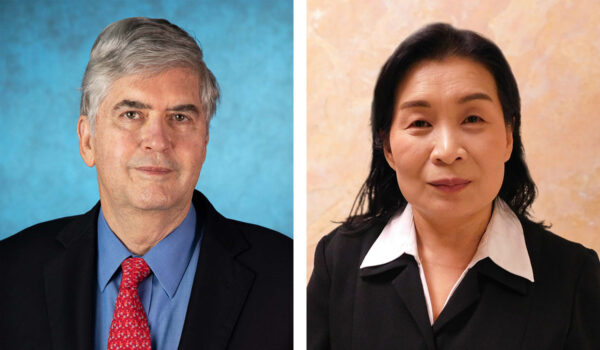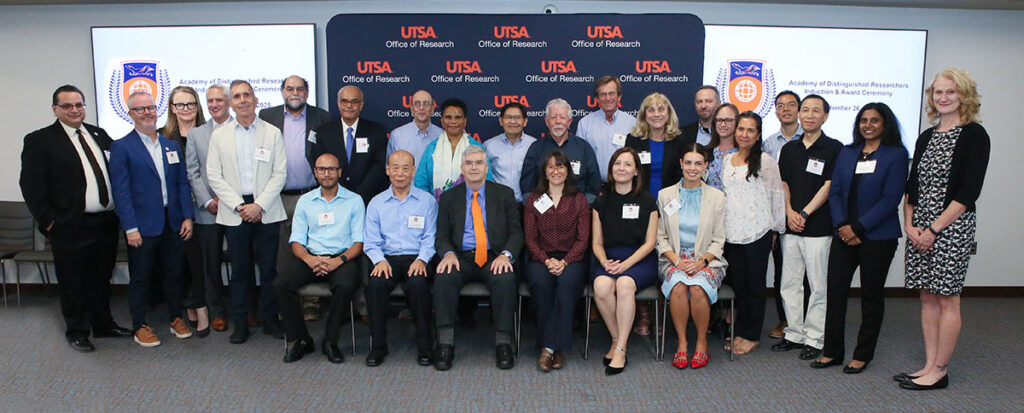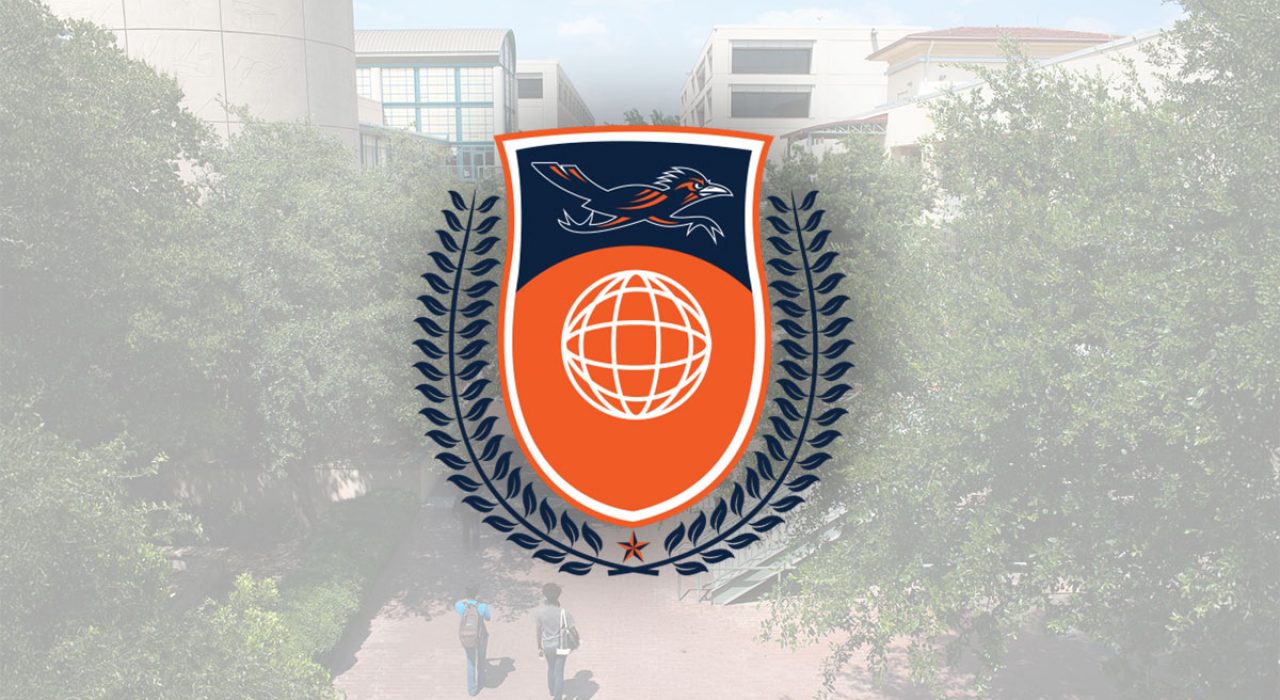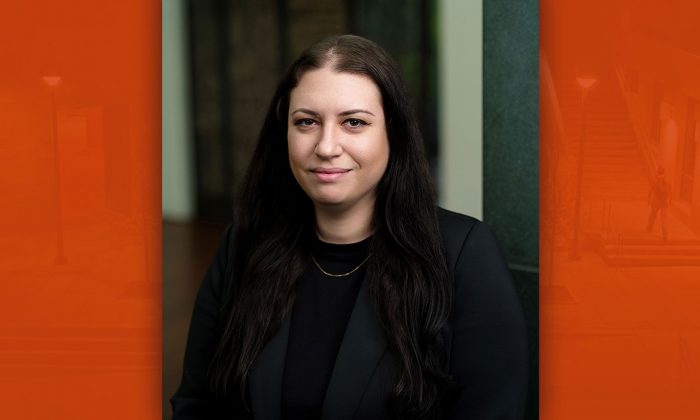The Academy of Distinguished Researchers at The University of Texas at San Antonio recognized on Friday the significant achievements of 11 researchers, welcoming two new inductees into the academy and celebrating the groundbreaking research papers of nine other investigators.
The new inductees to the academy include:
- Chiung-Yu Hung, Lutcher Brown Endowed Distinguished Professor in Microbiology and Immunology
- George Perry, Semmes Foundation Endowed Distinguished University Chair in Neurobiology, Neuroscience, Developmental and Regenerative Biology
“I am excited to celebrate Dr. Hung and Dr. Perry’s induction into the Academy of Distinguished Researchers,” said Heather Shipley, provost and senior executive vice president for academic affairs. “Through their research, publications and mentoring they demonstrate academic excellence. Their achievements continue to strengthen UT San Antonio’s standing as a Tier One research university.”
Established in 2015, the Academy of Distinguished Researchers comprises 32 accomplished faculty members from across UT San Antonio who represent diverse disciplines, from the arts and humanities to engineering, business, sciences and social sciences. It is chaired by Hamid Beladi, who is the Janey S. Briscoe Endowed Chair in Business and professor of economics.
“To meet the demands of the future, faculty must prepare students to innovate, think critically and lead in their chosen fields,” Beladi said. “Through their exceptional research, top scholars create transformational learning environments, strengthen our academic programs and prepare students to make meaningful contributions in a rapidly evolving world. Research excellence is a win-win for students, faculty and the university.”
“Research excellence is a win-win for students, faculty and the university.” — Hamid Beladi
Academy membership is highly selective. Members are nominated by their college dean or the vice president for research, and nominees must submit three recent publications to demonstrate ongoing, rigorous achievement in research.
“Our members of the Academy of Distinguished Researchers are true powerhouses serving as the very best practitioners of research and thought leaders in their fields,” said Jennifer Sharpe Potter, senior executive vice president for research and innovation at UT San Antonio. “I’m proud to welcome Dr. Hung and Dr. Perry to the academy and I am grateful they are choosing to make their academic home at UT San Antonio. It is also a privilege to celebrate our distinguished authors whose high-impact papers forged new paths in their respective disciplines this year.”

About Hung and Perry
Hung is a leading expert in medical mycology with over 25 years of research backed by the National Institutes of Health (NIH) on fungal infections, including coccidioidomycosis — also known as valley fever. In 2022, she received NIH funding to establish the Coccidioidomycosis Collaborative Research Center, where she works with her team to develop therapeutics and vaccines.
She has published more than 80 peer-reviewed manuscripts in prestigious journals such as mBio and Vaccine. She holds a PhD from the University of Texas at Austin and joined UT San Antonio in 2005, where her excellence in research has been recognized with the UT San Antonio President’s Distinguished Research Achievement Award and multiple Innovator Awards.
In addition to Hung’s own research, her mentorship has guided numerous students to receive prestigious awards and fellowships. Her trainee, Sarah Sage, received the first-ever NIH F31 predoctoral fellowship for a PhD student in the Department of Molecular Microbiology and Immunology.
Perry is a distinguished professor and former dean of sciences at UT San Antonio. A pioneer in Alzheimer’s research since 1982, Perry made the seminal discovery that oxidative stress is a key feature of neurodegenerative diseases.
Perry’s groundbreaking work, which has been cited over 130,000 times, suggests that amyloid may be a protective antioxidant response rather than the cause of Alzheimer’s, providing a novel explanation for the failure of amyloid-based therapies.
In addition to his extensive research, Perry is the founder and editor-in-chief for the highly cited Journal of Alzheimer’s Disease and is a member of the Academies of Sciences of Mexico, Portugal and Spain. He has received multiple accolades including the Rous-Whipple Award and the Golden Axon Leadership Award.

Best research papers
For the second year in a row, the academy also honored high-impact publications with the Best Research Paper Awards. The awards were established to recognize research articles that have a profound impact on their field and exemplify the caliber of the research community at UT San Antonio as a Tier One research institution, Beladi said.
“These awards serve as a testament to the university’s Tier One research designation and further incentivize faculty to pursue groundbreaking, high-quality research,” he added.
Colleges can nominate up to two people per year and nominations must come from the college deans. The 2025 Best Research Paper Award titles and winners include:
- “Losing sleep over speaking up at work: A daily study of voice and insomnia,” Dina Krasikova (Carlos Alvarez College of Business)
- “Local Administration of Lipid-Silica Nanohybrid-Carried Forskolin Modulates Thermogenesis in Human Adipocytes and Impedes Weight Gain in Mice,” Maria Gonzalez Porras and Eric Brey (Margie and Bill Klesse College of Engineering and Integrated Design)
- “A peptide-binding domain shared with an Antarctic bacterium facilitates Vibrio cholerae human cell binding and intestinal colonization,” Karl Klose (College of Sciences)
- “Do learners connect sociophonetic variation with regional and social characteristics?: The case of L2 perception of Spanish aspiration,” Whitney Chappell (College of Liberal and Fine Arts)
The 2025 Best Research Paper Honorable Mentions include:
- “Equitable anesthesiologist scheduling under demand uncertainty using multiobjective programming,” Minghe Sun, Arkajyoti Roy (Alvarez College of Business) and Frank Rosinia (Joe R. and Teresa Lozano Long School of Medicine)
- “Relational Maneuvering of Leader-Follower Unmanned Aerial Vehicles for Flexible Formation,” Yongcan Cao (Klesse College of Engineering and Integrated Design)



